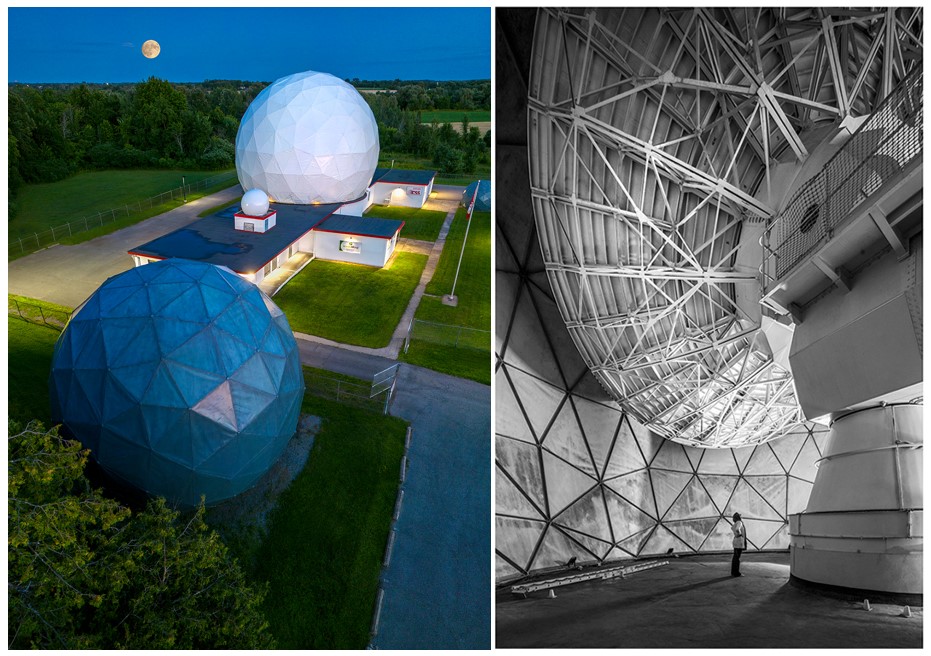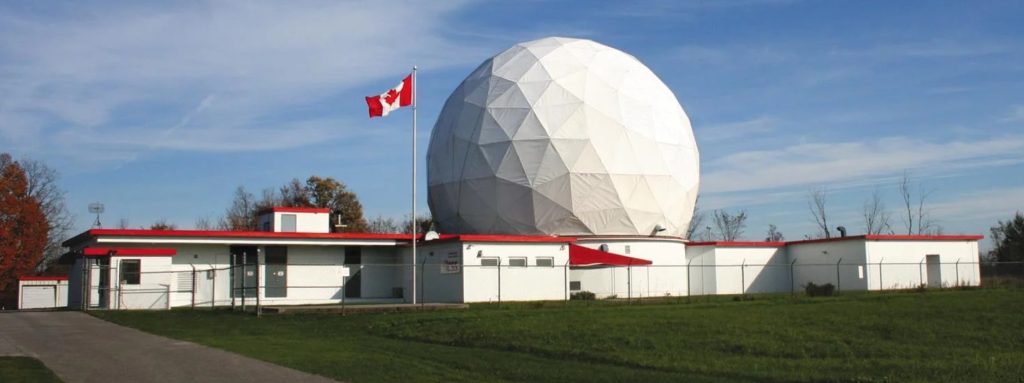Summer Camp
CCERA 2026 Radio Astronomy Summer Camp (Ages 12-16)
The 2026 CCERA Radio Astronomy Summer Camp will be offered twice. The first session will be held July 27-31 and the second will be held August 3-7, 2026. The sessions will be identical. If you would like to register your interest, please do so by sending an e-mail to info@ccera.ca.
Overview
The program will be run by the Canadian Centre for Experimental Radio Astronomy (CCERA) at its observatory in Carp, Ontario.

Participants will work in pairs to construct a small (75 x 75 cm2) horn antenna along with a low-noise readout amplifier, which will be used observe 21-cm-wavelength radio signals from the Sun and as well as the radio waves that are emitted by the hydrogen gas that permeates the Milky Way. Data from these homemade radio telescopes will be used to observe the arms of the galaxy. Results from the homemade horn antennas will be compared to equivalent measurements from CCERA’s 12.8-m dish.
Techniques
Participants will learn a lot of things along the way. These include: i) basic construction techniques (measuring, cutting, gluing, etc.: ii) techniques for connecting electronic modules; iii) the rudiments of astronomy and radio astronomy; iv) the microscopic origin of the 21-cm radiation; v) the interpretation of simple plots of scientific data. Participants will be provided with user-friendly software to display their data.
Format & Schedule
Participants will meet five days a week (M-F from 10:00 AM to 4:00 PM) over a one-week period. Although most of the time will be devoted to constructing the horn antennas, using them to acquire data, and interpreting the data, short talks on astronomy, radio astronomy, and other related topics will be interspersed throughout the sessions.
The 2025 camp will be offered twice in the late-July/early August time frames. Each camp will run for five days, Monday through Friday. (Precise dates to be determined).
Instructional Staff
Participants will be guided by a team of scientific and technical experts. The lead instructors will be CCERA President Marcus Leech, who is a well-known expert in radio astronomy and software defined radio, and Daniel Marlow, who is a CCERA member and a Professor of Physics at Princeton University.
Eligibility
This camp is designed for ages 12-16. The course will assume no prior knowledge in physics or astronomy, although participants should have an interest in science and feel comfortable with basic mathematical notions (for example, understanding the points on a compass and the notion of an angle).
Potential participants who are not sure whether or not the camp is for them should feel free to contact us at info@ccera.ca to arrange for an interview.
Cost
The fee for this one-week program will be $375.
Location
The camp will be held at the site of the dish at the Carp Observatory, 2336 Craig’s Side Road, Carp, Ontario

See: Carp Observatory
Contact
Interested parties should contact info@ccera.ca to register their interest and/or to obtain further information.
